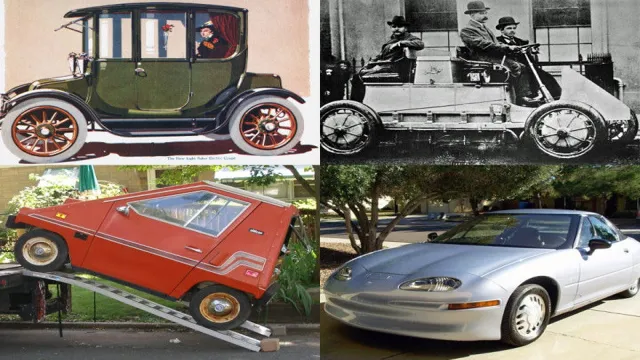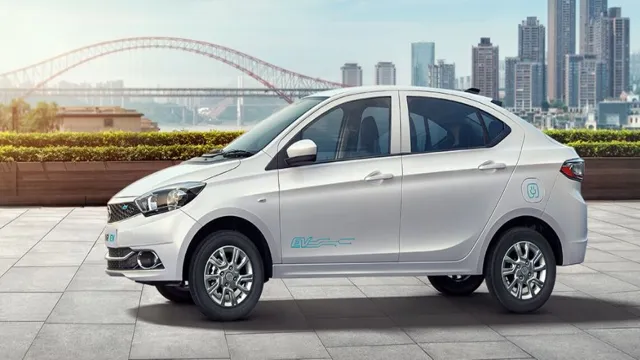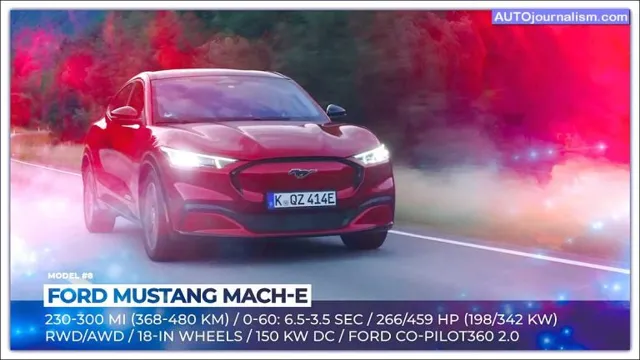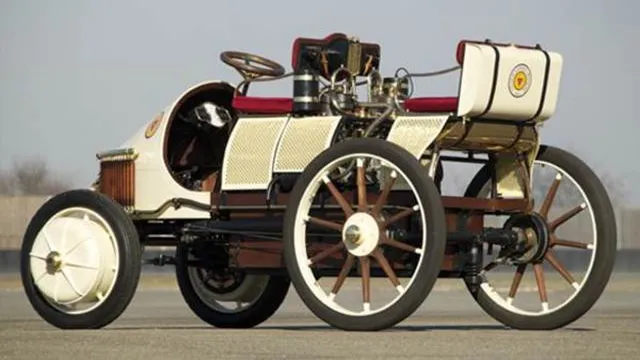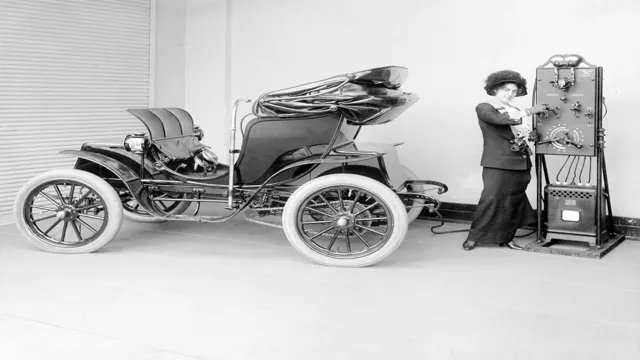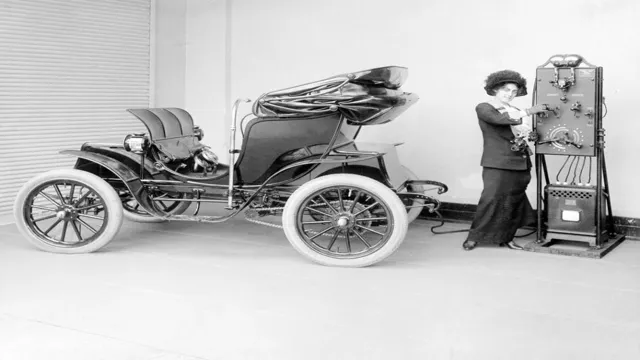Uncovering the Fascinating Journey of Electric Powered Cars through History
Electric cars have been gaining a lot of attention recently, especially with the increasing focus on sustainable energy and reducing our carbon footprint. But, did you know that the history of electric cars dates back much further than you might think? In fact, the early development of electric cars actually predates cars powered by gasoline. In the late 1800s and early 1900s, electric cars were a popular mode of transportation, especially in cities like New York and London.
They were seen as a cleaner and quieter alternative to the loud and smelly gasoline cars of the time. However, the rise of mass production and the discovery of large oil reserves made gasoline cars cheaper and more practical, leading to the decline of the electric car industry. But, fast forward to the 21st century and the electric car is experiencing a resurgence.
With advances in technology, electric cars are more efficient, practical and affordable than ever before. Companies like Tesla, Nissan, and Chevrolet are leading the charge in producing high-quality electric cars that are changing the face of the industry. Now, the electric car market is expanding at a rapid pace, with governments around the world offering incentives for buying electric cars and more and more charging stations popping up everywhere.
The history of electric cars has come full circle, and it seems that this time they are here to stay.
Early Beginnings of Electric Transport
Electric powered cars history dates back to the early 1800s when inventors began exploring electric vehicles as a viable transportation option. In 1835, a blacksmith named Thomas Davenport created the first American-built electric vehicle. However, it wasn’t until the late 1800s when electric cars started becoming commercially available.
The first electric taxis appeared on the roads of New York City in 1897, and within a few years, electric cars made up about a third of all vehicles on the road. It was a trend that continued until the 1920s when gasoline-powered vehicles became more popular due to their longer range and lower cost. Despite the decline in popularity, electric cars have remained a fascinating subject for researchers and inventors alike.
Today, electric cars are becoming increasingly popular again as the world looks for more sustainable transportation options.
Invention of the First Electric Car
The early beginnings of electric transport date back to the 1830s when innovators such as Robert Anderson and Thomas Davenport were experimenting with electric propulsion. However, it wasn’t until the late 19th century that the first practical electric car was invented. In 1891, William Morrison, an American inventor, developed a six-passenger electric vehicle that could reach a top speed of 14 miles per hour.
It was powered by a rechargeable battery and had a driving range of 13 miles. Although electric cars were more expensive than their gasoline-powered counterparts, they gained popularity among affluent city dwellers who valued their quiet and clean operation. In fact, by 1900, electric cars made up almost 40 percent of all automobiles in America.
Unfortunately, the invention of the electric starter motor by Charles Kettering in 1912 made gasoline cars more convenient to operate and dealt a major blow to the electric car industry. Nevertheless, the early pioneers of electric transport paved the way for the electric cars of today and demonstrated the potential of sustainable mobility.
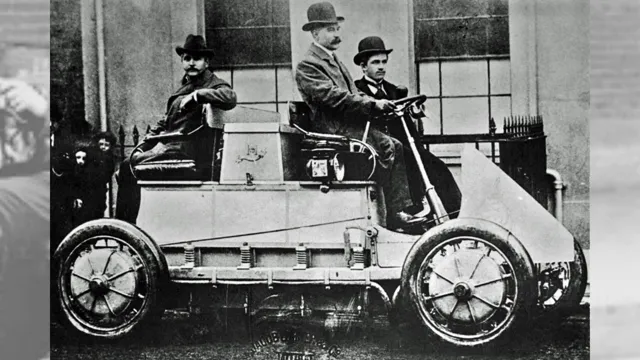
The Emergence of Hybrid Cars
The emergence of hybrid cars has been a major breakthrough in the world of vehicles, with their ability to save fuel while reducing carbon footprint. However, the early beginnings of electric transport can be traced back to the early 1830s, when the first electric carriage was invented in Scotland. Over the years, electric cars became more popular, and by the turn of the 20th century, they had become a common sight on the roads.
As the demand for vehicles increased, so did the need for more efficient cars that could travel longer distances. This led to the development of gasoline-powered cars, which grew in popularity due to their longer range. In recent years, however, with advances in technology and increased awareness about the environment, the demand for electric and hybrid cars has exploded.
These cars offer the best of both worlds, combining the efficiency of electric cars with the longer-range capabilities of gasoline-powered cars. With the development of these cars, it’s clear that we’re heading towards a greener future, where cars will be far more efficient and environmentally friendly.
Electric Cars in the 21st Century
The history of electric powered cars dates back to the 19th century when electric vehicles were popular among city dwellers. However, with advancements in the internal combustion engine, gas-fueled cars began to dominate the market and electric vehicles were soon relegated to being niche products. Despite the resurgence of interest in electric cars in the 21st century, the technology still faces certain challenges such as limited battery life and the need for more charging stations.
Nevertheless, electric cars have come a long way since their early days and are now more efficient and practical than ever before. The shift to electric vehicles has been driven by a growing concern for the environment, as they produce zero emissions and are quieter than their gas-powered counterparts. With governments around the world incentivizing the use of electric cars and implementing policies aimed at phasing out gas-fueled vehicles, it’s only a matter of time before electric cars become the de-facto standard mode of transportation.
Introduction of the Tesla Roadster
Electric cars have become increasingly popular in the 21st century, thanks to advancements in technology and a growing concern for the environment. In 2008, Tesla introduced the Roadster, which was the first electric vehicle to use lithium-ion battery cells. This revolutionary innovation allowed the Roadster to travel up to 245 miles on a single charge, making it a game-changer in the industry.
The Roadster’s sleek design and impressive performance capabilities quickly made it a favorite among car enthusiasts and eco-conscious drivers alike. It’s an exciting time for the electric car industry, and with the introduction of vehicles such as the Tesla Roadster, it’s clear that the future of transportation is electric.
Growing Popularity of Electric Vehicles
Electric Vehicles Electric cars have taken the automotive world by storm in the 21st century, as more and more people are choosing to make the switch to sustainable and eco-friendly transportation. With advancements in technology and government incentives, the popularity of electric vehicles has grown exponentially. Electric cars offer numerous benefits such as lower maintenance costs, reduced air pollution, and a smoother driving experience.
With the ability to charge quickly and travel long distances, these vehicles are becoming an accessible and practical mode of transportation. As more car manufacturers begin to invest in electric vehicle production, we can expect to see a further surge in EV popularity in the years to come. It’s clear that electric cars are here to stay and are set to revolutionize the way we think about transportation.
Advancements in Battery Technology
Electric cars have revolutionized the automotive industry, and advancements in battery technology have played a crucial role in their development. Modern electric vehicles rely on high-capacity batteries that offer extended range and faster charging times. Lithium-ion batteries are currently the go-to battery system for electric vehicles, as they offer a balance between energy density and cost-effectiveness.
However, research is ongoing into more efficient and sustainable battery technologies, such as solid-state batteries that promise to offer higher energy density, longer lifespan, and faster charging times. With such technological advancements, the future of electric cars looks bright, as they are fast becoming more accessible, reliable, and sustainable. As more automakers embrace electric technology, we can expect to see faster charging times and longer driving ranges, making them a more viable alternative to traditional fossil-fuel powered vehicles.
Electric Cars in the Future
The history of electric cars dates back to the 19th century, with inventors like Thomas Davenport, Robert Anderson, and Thomas Parker creating early versions of electric powered vehicles. However, it wasn’t until the early 2000s that electric cars started to make a comeback. With advancements in technology, electric cars became more practical and affordable for consumers.
Companies like Tesla, Nissan, and Chevrolet began producing electric cars that could travel longer distances and charge faster. As we move into the future, it seems inevitable that electric cars will become more prevalent on our roads, not just because they offer a cleaner and sustainable mode of transportation, but also because they are becoming more accessible and affordable. With the development of more efficient batteries and infrastructure, the potential for electric cars to become the norm is certainly within reach.
The history of electric cars may be long and varied, but it is clear that their future is just beginning.
Projected Growth of Electric Vehicles
The projected growth of electric vehicles looks bright as more and more people are becoming environmentally conscious and looking for ways to reduce their carbon footprint. With advancements in technology and decreasing costs, electric cars are becoming more accessible to the average consumer. Many car manufacturers are investing in the development of electric cars, and countries around the world are incentivizing the transition to electric vehicles through tax breaks and subsidies.
It’s not just passenger cars either; electric buses, trucks, and even airplanes are being developed. In the near future, we can expect to see a significant increase in the number of electric vehicles on the roads, reducing greenhouse gas emissions and promoting a cleaner planet. As consumers continue to prioritize sustainability, the growth of electric cars will not only benefit the environment but also create new job opportunities in the automotive industry and contribute to a more stable energy system.
Development of Self-Driving Electric Cars
As technology evolves, the future of driving lies in self-driving electric cars. With the rise in environmental concerns and the need to reduce carbon emissions, electric cars are rapidly gaining popularity. The idea of a car that drives itself and runs on electricity is not too far-fetched either.
The development of self-driving electric cars is happening at a rapid pace. Many car manufacturers are investing heavily in research and development to make this possible, harnessing the power of AI to create advanced driving systems. These systems can sense and react to the environment around them, making driving safer and more efficient.
With many cities planning to ban gas-powered cars in the near future, self-driving electric cars offer a sustainable, long-term solution. It’s exciting to think about a future where we can sit back, relax, and let our cars do the driving for us.
Conclusion
In conclusion, the history of electric powered cars is a tale of innovation, experimentation, and determination. From the early days of battery-powered carriages to the sleek and sophisticated vehicles of today, electric cars have come a long way. While gas-guzzling cars have long dominated the roads, the electric car is once again gaining momentum as people look for ways to reduce their carbon footprint and make the world a cleaner, greener place.
Who knows what the future holds for electric cars, but one thing is for sure – they’re here to stay and putting a charge into our lives!”
FAQs
When were the first electric powered cars invented?
The first electric powered cars were invented in the 1830s.
What was the range of early electric cars?
Early electric cars had a range of only around 50-60 miles per charge.
Why did electric cars lose popularity in the early 20th century?
Electric cars lost popularity in the early 20th century due to the lower cost of gasoline, longer range of gas-powered cars, and the availability of paved roads which made gasoline cars more practical.
When did interest in electric cars start to revive?
Interest in electric cars started to revive in the 1990s due to concerns about air pollution, climate change, and the desire for greater energy independence.
What are some benefits of electric powered cars?
Benefits of electric powered cars include lower emissions, lower fuel costs, and a quieter ride compared to gas-powered cars.

